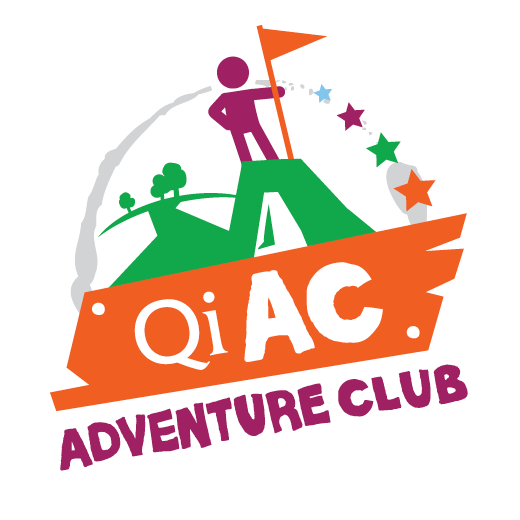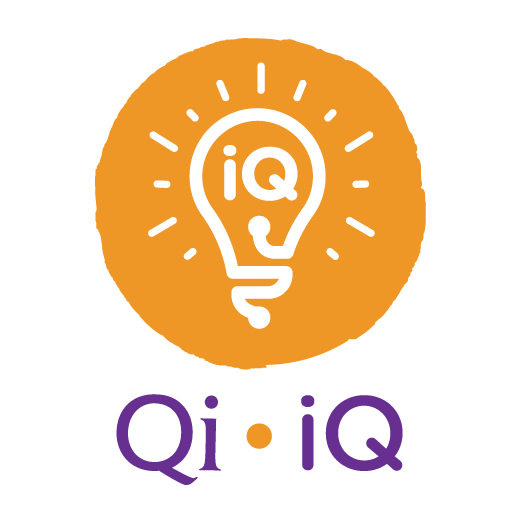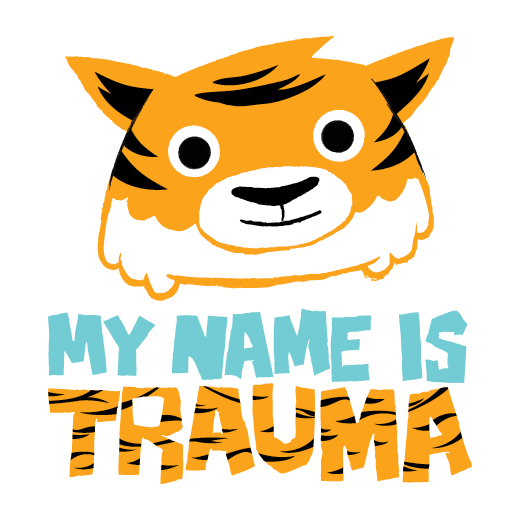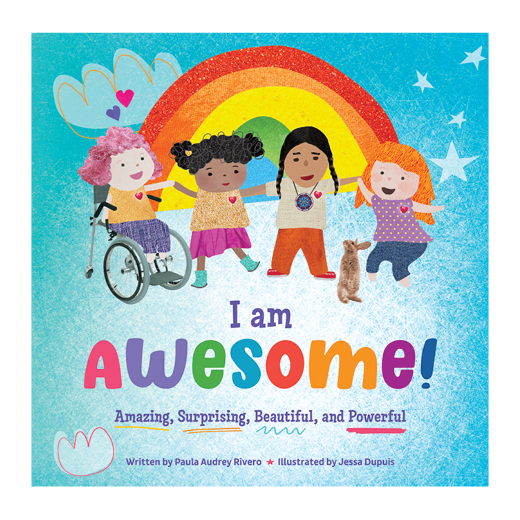Hope and Hopeful Activities
Nick Fewings / Unsplash
Did you know you can study Hope in university? Our Communications Director, Deanna did! Here are a few words from her:
In my Human Ecology degree program at the University of Alberta, I took a course called Hope and the Helping Relationship. This course was taught by Dr. Denise Larsen, who leads the Hope Foundation on the UofA campus.
Formerly known as Hope Studies Central, the ‘hope house’ has over 25 years changing the lives of others through hope research and practice. Dr. Larsen has a specific focus on applying hope to professional care giving interactions, and I hope (haha) my learnings influence the way I work with others.
The views expressed within are my conceptualizations of hope over years of practice experience as a human ecologist, not necessarily the syllabi I had to learn as a student (sorry Denise!)
Also of note: The views and activities listed within surrounding hope and hopeful activities are by no means a substitution or replacement for professional help or medical advice. Always collaborate with your medical team before starting, continuing, or stopping any prescriptions, therapies, or therapeutic activities.
What is Hope?
Benjamin Elliott / Unsplash
Hope can mean a lot of things to different people, though no matter how you frame it or experience it, hope is a vital aspect of our experience and growth as human beings.
Merriam-Webster definitions:
to cherish a desire with anticipation;
to want something to happen or be true;
to expect something with confidence;
and so on.
Some more comprehensive definitions:
“A process of anticipation that involves the interaction of thinking, acting, feeling and relating, and is directed toward a future fulfillment that is personally meaningful” (Stephenson, S. 1991, p. 1459)
“The fundamental knowledge and feeling that there is a way out of difficulty, that things can work out, that we as human persons can somehow handle and manage internal and external reality” (Lynch, W. F., 1965, p. 32)
Ultimately, many definitions of hope are surrounded by some important elements: trust, believing in that trust, energy, and resilience. Trust that something can or could happen, trust that there is energy and awareness present, trust that your wants and needs are being acknowledged.
Hope is derived from the layered, energetic relationships to the greater systems you reside in, and their subsequent reassurances and fulfillments.
Many definitions of hope are surrounded by important elements: trust, believing in that trust, energy, and resilience.
Where this trust, and therefore hope, comes from depends on you and your circumstances. It could come from:
Your own individual love and resilience (I trust myself, I’ve been through this before)
Held up by another (I trust you, I trust us, I trust your opinion, I trust my parents, I trust my teacher/banker/caseworker)
Your surroundings (I trust the world I live in, I trust what they are saying on the news, I trust that my health insurance will be honoured for my injury)
From strangers (I trust the energy I have received, I trust that my donation will be spent wisely)
The momentum of what you’re currently going through (I have trust that I will make it through this).
This trust-relationship is not all-or-nothing, either—I’m sure you’ve heard of a “glimmer” of hope, or how the initial stirrings of hope are enough to carry someone forward.
Hope could be a short-term burst of warmth, small gestures of reassurance, the ‘light’ at the end of a difficult tunnel, or a gradual rise from the ashes—I’m sure we’ve all dreamed and experienced different types and waves of hope, from the temporary dreams gained after a lottery ticket purchase, to seeing a loved one pull through from a serious illness.
Losing Hope
Jonathan Rados / Unsplash
“Hope is a state of mind, not of the world. Hope is not the joy that things are going well, or investing in enterprises that are heading for success, but rather an ability to work for something because it is good.”
When we ‘lose’ hope, we often lose it from a threatened trust-relationship somewhere in our living systems (where human ecology comes in).
We could have lost our hope gradually, or all at once; we could have a loss of hope in one area, but still feel hopeful in other areas.
Much like trauma, hope is a particular perspective of being and thinking that can be hard to attain if one feels powerless and unsafe (ie, if you’re already in a difficult life situation, Hope can seem foolish or impossible).
You could be generally unchanged in your day-to-day living, but bad news outside of your immediate system can threaten your sense of hope. Inversely, you could be living in a dysfunctional system, but hope comes in as an extrinsic motivator to affect change on that system.
But no matter where you find hope, or foster it, it’s worth holding on to.
Even when times are seemingly at their worst; even when you may consider yourself at your personal worst, or “unworthy” or hope (I hope you never say or think this), consider some of the activities below if your own feelings of hope may be affected at this time.
Activities to Foster Hope
Below are a few activities that I went through in my Hope studies, and a few that have been ideated over work in the pediatric healthcare field:
Write a letter to yourself, but give it to a friend.
Joanna Kosinska / Unsplash
Write a heartfelt letter to your future self.
You could tell your future self how you’re currently feeling in the moment, hopes and dreams you have for them, a retelling of what you’ve been through that month. Handwritten if possible!
The first time I wrote a hope letter, I stuffed it to the edges with positive truisms and fuzzy quotes—but later on, started to drop that social mask and be honest with how hopeless and vulnerable I was feeling in that time of my life.
“Hope audaciously. Others can give you statistics, predictions and probabilities, but only you can decide what to hope for. So decide.”
Once you’re done, stick that letter in a sealed envelope and give it to a trusted person who will mail that letter back to you during an undisclosed period of time. (You can even do them a favor and stick a stamp on the envelope in advance.)
They could send the letter back to you in a month, in 3 months, or more—just under the hope that when it returns to your arms, it comes to you when you need it.
Alternate activity: Another way I make a ritual out of hope is mailing postcards to friends when I’m travelling abroad, including a postcard to myself before I return home—one last souvenir that rejuvenates me in the weeks after I’m adjusting back to my regular life.
Writing a postcard to myself? Sounds a bit like this next strategy….
Give journaling a try.
Prophsee Journals / Unsp[ash
I bet you’ve heard this one before.
I’ve been on and off with journaling since I was a kid, and still have collections of half-written notebooks and padlocked diaries somewhere in my childhood shelves.
Your journal could be in the form of a coiled notebook (the dollar store is a great place to start) or something sturdier and leather-bound.
It could be an app on your phone, which is a growing and popular way to journal (and my main way of journaling these days)
Journaling works twofold, to not only vouchsafe your thoughts in the immediate moment of writing, but also to create a chronological history of yourself and your progress.
When you are at your lowest moments of hope, I invite you to try journaling. The hope is that in some future time, you look back on your past entries and see how far you’ve come, and to give yourself grace for what you’ve been going through at that time.
Alternate activity: Write a story about yourself, targeting a specific moment in time where you lost and regained hope. For example, the first time I was tasked to do this in class, I focused on my mother’s hospitalization when I was 12 years old, how my community rallied in the year of treatment and rehabilitation that followed, and having to move to a new city and school at 13. I will tell you now that writing that story wasn’t easy for me, and I had to ride a lot of physical-emotional reactions before that story was done.
Give yourself room to breathe, grieve, reflect—but also discover how it feels to be hopeful.
Ben White / Unsplash
One thing to remember is that hope shouldn’t come from positivity that isn’t quite there.
Hope is not “cheer up! Things will get better!” without regard for what you should try to cheer up from. That’s an offset worth another article in itself called Toxic Positivity.
Hope does not exist in the false realm of ‘good vibes only’, but in spite of it—you cannot hold hope without also knowing the shadows of what you are hoping to overcome. This is the unspoken dual nature of why we hope, and what it means to hold hope for ourselves and others. You can look to a less-than-promising future and be hopeful at the same time.
Perspective is a powerful thing, and hope can be a gift of perspective, but not without obfuscating the struggles or scars we must endure to begin a process of hoping and healing.
If you’re surrounded by a lot of media and messaging that focuses on the negative, try to also explore positive messaging around a topic, and who and where that messaging is coming from. A balanced perspective of hope is just as important as a balanced perspective to other topics in our lives.
Be Creative.
Kirk Cameron / Unsplash
In the hope studies class, one of our activities was to create a scrapbook-type poster for ourselves, using piles and piles of magazines in the classroom to dig through and find symbols and pictures that were meaningful to us. The point was to look for symbols of hope—collecting things that could remind you of hope at times when you might need it.
Hope symbolism is far more common than you think, and can be both highly individualized and emblems of group solidarity. A favourite animal or toy in childhood can become a collectible as an adult—-a national Flag or flower a sign of rebellion and resilience for millions.
You can do the same if you like, but a digital, scissors-and-glue-free option can be as easy as assembling a Pinterest board with pictures and quotes that fill your sense of hope.
Your journaling efforts in the earlier suggestion can switch to poetry, or painting, or even just daydreaming. Where the anxious mind likes to wander to the worst possible outcome(s), the hopeful mind can wander to loving and positive outcomes.
Talk it out with a trusted one.
Priscilla Du Preez / Unsplash
After you’ve entrusted your hope letter, why not have a chat with them? I use ‘trusted one’ quite generally, to include family, friends (online or offline), professionals, and others who you can safely express vulnerability with.
Remember things that turned out better than you expected. Tell someone about them.
Remember impossible things that became possible. Tell someone about them.
Hang out with hopeful people. You know you have found the right people when you notice that you feel hopeful when you are with them. Avoid people who bring you down.
A quick shout-out to the many mental health and wellness hotlines in the city, province and country—I personally have it on authority by a friend who works there that the local Distress Line (780-482-4357) would be glad to hash out hope with you. Truly, no problem is too big or too small.
Let me say that again: You don’t have to be in an immediate, serious crisis to reach out to a hotline. If you’ve ever thought about calling a hotline but avoided it because you thought your issues weren’t as ‘serious’ as others, allow me to convince you that nobody who works at a hotline will judge what you disclose to them.
You will be listened to no matter what happened/is happening to you.
Go it Alone.
Jake Melara / Unsplash
And now for the opposite approach—seek solitude that is your own.
Growing up, I lived in a house next to a ravine, where the forest was right at my back door. This led to many opportunities throughout the year to toss myself in the woods when things got too stressful for me, or if I needed a break from my day for some fresh air.
A ‘me day’ is oftentimes also paired up with spending, like splurging on something you’ve been eyeing for a while, or watching a movie. These activities aren’t inherently bad, but when they run into the realm of distraction, they can be counter to your feelings of hope and processing hope through a difficult time.
The goal of this suggestion is to achieve a solitude that pushes past any real or conceived social conventions and effectively removes you from your everyday living routines, even if just for a couple hours.
If you’re in crisis, I would return to the start of this blog and refer you to professional medical support. But if your hope is being challenged, solitude without phones, radio, loved ones, and so on can help you integrate your thoughts and senses.
Make a Call.
Yujeong Jeon / Unsplash
Have you ever heard of the Wind Phone?
The Wind Phone is a telephone booth located in Japan—a phone booth with no connection to any land or cellular line.
Initially created by Itaru Sasaki, the Wind Phone was opened to the public following the earthquake and tsunami disaster of 2011. Since then, the Wind Phone has had tens of thousands of visitors, who enter the phone booth to ‘contact’ deceased and missing loved ones.
You don’t need to travel across to Japan for this one—find a spot and use your own phone. Dial no one, but contact ‘someone’.
And start talking.
This activity is can also take the shape of writing letters to recipients who will never read them. This activity can be emotionally heavy, especially if there is a loss of hope surrounding someone who is not treating you well, is not listening to you, is unwell, or has passed away.
Not all of the activities in this list will be easy, or feel easy to do. Hope isn’t always that easy to achieve, unfortunately. But know that in this activity, thousands upon thousands of others have done the same, seeking hope through grief and closure.
Be of Service.
Ismael Paramo / Unsplash
In today’s world, many people find themselves pressured to be productive in ways that monetize every waking moment.
For example, perhaps you’re an accountant but you love to play video games, so you may have been encouraged to stream more regularly, or make streaming a part-time job with subscriber and audience targets to hit. A person who loves to make digital art may be encouraged to freelance on the side, promote themselves constantly over social media, and so on.
With this pressure to produce, compete, and ‘hustle’, volunteering is like an act of protest against this culture while still giving back to others and uplifting fellow human beings. Some find volunteering to fill intrinsic niches in our hearts and hopes that no other occupation can.
If you do happen to stream games, look to fundraising with your local hospital for an Extra Life campaign, or if you love to cook, perhaps there’s a food bank or drop-in kitchen for free community meals that could use your expertise.
Some other examples:
Got a car? See if you can volunteer for a meal delivery service, or assisted transportation.
Like to write? Search around for penpal programs for older adults, prisoners, and more.
Live near a University or College? Consider joining a Safewalk program to guide students, staff, faculty and visitors.
Social butterfly? Many seniors’ living centers offer flexible visitor programs to engage 1:1 with residents.
Miss your postsecondary experience? See if any clubs or faculties could use an alumni for career coaching, presentations, or advisory roles.
Snowed in? See if others could use your help to shovel a driveway or walk a dog.
This particular point in our blog doesn’t mean to avoid these opportunities if they’ll turn into jobs or skill building later on—but see if you can find that sweet spot of doing something you enjoy while also giving back in your local community, with no obvious rewards of salary or reference letters.
Make sure it’s yours.
Fares Hamouche / Unsplash
The parameters of this suggestion could go for hours, but if you’re cynical about hope, this is a quick one.
Is what you hope for, really and truly your hope?
If it’s your mother’s, it’s not yours. If it’s your kid’s, it’s not yours. If it’s what you hoped when you were in junior high, and you’re married with kids now, it may not still be yours.
Depending on your own individual background, upbringing and life circumstances, a lot can potentially come between you and your hope. Hope studies and looking back on your hopes is likely a lot more self-examination than you thought clicking on this blog. It’s okay!
This isn’t to say you should drop the hopes you had as a child, but to evaluate and re-evaluate. Only you can decide what to hope for, and continue to hope for.
Keep in touch with us.
Whether you’ve worked with us, met us at a workshop or presentation, or participated in one of our adventure club activities, you are part of this Qi Family.
We are reachable through this website, or our social media platforms. If you work with us individually, know that fostering a sense of hope is just as important as any other life challenge. If you are filling out an Intake Form, I will likely be the one to call you back. If so—hello in advance!
No matter the circumstance, we are all in this together. My final words to you are that hoping is an active process. Old hopes wear out over time, so endeavor to keep finding new things to hope for.
For more information, check out:
“Hope is not a mystery to be yearned for. It can be found. It can be fed.”



















